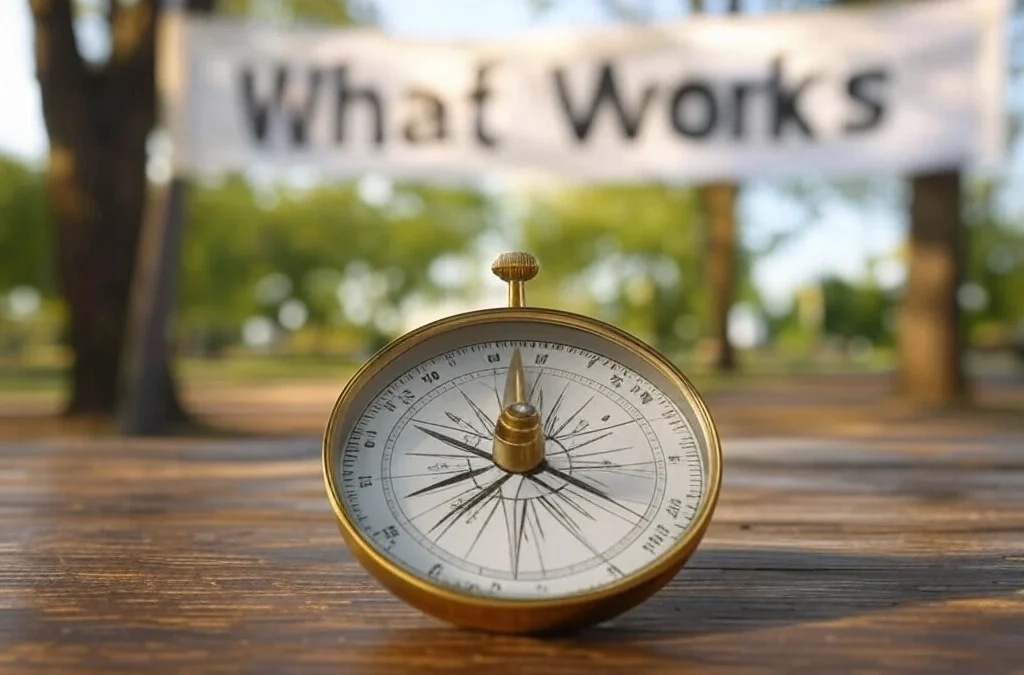Socialization is a fundamental process in the development of individuals, shaping their beliefs, values, and behaviors. Socialization agents examples include a wide array of influences that play a crucial role in this process. These agents range from family and schools to media and peer groups, each contributing uniquely to an individual’s social learning and growth. Understanding these agents helps us comprehend how people acquire the norms, values, and skills necessary for successful participation in society.
In this article, we will explore the top 20 socialization agents, providing a clear definition and detailed examples of each. From the intimate environment of a family setting to the expansive influence of mass media, these agents collectively create the tapestry of social experience. By identifying and understanding these various agents, we gain insight into the complexities of human socialization and the diverse factors that mold our social identities.
What Are Socialization Agents?
Socialization agents are individuals, groups, or institutions that play a crucial role in integrating an individual into society by teaching social norms, values, and behaviors. Key socialization agents include family, schools, peers, media, and religious institutions.
Each agent influences various aspects of social development, from basic manners and cultural practices to societal roles and ideologies. Understanding socialization agents is essential in comprehending how individuals develop social skills and cultural understanding within their community.
Socialization agents are integral to shaping an individual’s identity and worldview. Beyond family, schools, peers, media, and religious institutions, workplaces and social networks also serve as socialization agents. These agents facilitate the transmission of cultural norms and values, influencing an individual’s beliefs, behaviors, and attitudes.
The family, as the primary socialization agent, instills the earliest and often most enduring social norms. Schools and educational institutions further this socialization by teaching formal knowledge, social skills, and cultural literacy.
Peers provide a platform for practicing social interactions and developing interpersonal skills, while media shapes perceptions and informs about societal norms and global issues.
Religious institutions contribute to moral and ethical development. Workplaces and social networks expose individuals to diverse perspectives and social expectations. The interplay of these agents ensures the continuous evolution of social norms and prepares individuals to function effectively in society.
The Best Examples of Socialization Agents
1. Family
Role: Primary agent of socialization.
Families are the cornerstone of socialization, serving as the primary influencers in shaping an individual’s character. They play a pivotal role in laying the foundation for one’s values, morals, and basic social behaviors. The family unit is where many individuals take their first steps in understanding relationships and societal expectations. It is within the familial context that core beliefs and principles are introduced, creating a framework for how individuals perceive and engage with the world. The family’s impact extends far beyond childhood, influencing personal development throughout one’s life.
2. Schools
Role: Formal education and social integration.
Schools are not just institutions for academic learning; they are crucial hubs for socialization. Beyond imparting knowledge, schools serve as environments where individuals develop essential social skills, learn teamwork, and absorb cultural norms. Peer interactions during this stage are particularly influential, shaping social dynamics and individual identities. Schools play a vital role in preparing individuals for the broader social context they will encounter in adulthood, laying the groundwork for future relationships and interactions.
3. Peers
Role: Socializing with friends and peers.
Peer groups hold significant sway over individual behavior and attitudes. During adolescence, especially, peers become a major source of influence, providing a different perspective from the family and influencing personal choices. Friendships and peer interactions contribute to the development of social skills, the formation of identity, and the understanding of societal norms outside the family context. The influence of peers highlights the importance of diverse social interactions in shaping a well-rounded individual.
4. Media
Role: Mass communication and cultural influence.
The media, encompassing television, internet, and social media, wields substantial power in shaping perceptions, values, and societal norms. It serves as a constant presence in modern life, influencing how individuals perceive the world around them. While it can be a powerful force for socialization, it also introduces complexities, such as the potential for misinformation and the impact of media portrayals on self-image. Media literacy is crucial for navigating the nuanced landscape of cultural influence.
5. Religion
Role: Moral and ethical guidance.
Religious institutions play a vital role in shaping an individual’s moral compass and providing a sense of belonging to a larger community. Beyond moral guidance, religion often serves as a source of identity, community, and shared values. However, the impact of religion on socialization can vary widely, and its influence may evolve over time. The role of religion in socialization underscores the diversity of belief systems and their profound impact on individuals and societies.
6. Government
Role: Legal and civic socialization.
Government institutions introduce individuals to the legal system, civic responsibilities, and the concept of citizenship. This formal aspect of socialization provides a framework for understanding one’s rights and obligations within a society. However, the effectiveness of government in shaping socialization depends on factors such as governance transparency and the responsiveness of institutions. A well-functioning government contributes to a sense of social order and shared responsibility.
7. Workplace
Role: Professional and occupational socialization.
The workplace is a crucial arena for socialization, introducing individuals to organizational culture, work ethics, and professional behavior. Beyond acquiring job-related skills, individuals learn about collaboration, communication, and navigating hierarchical structures. Workplace socialization has a lasting impact on personal and professional development. A positive work environment fosters not only individual growth but also contributes to a healthy and productive society.
8. Neighborhood
Role: Community and local socialization.
The neighborhood plays a key role in introducing individuals to community values, cooperation, and shared responsibilities. It’s a microcosm of society where people learn to navigate relationships beyond the family unit. Local interactions contribute to a sense of community and belonging, fostering social cohesion. The neighborhood’s influence highlights the importance of community engagement for a well-rounded social experience.
9. Sports and Recreation
Role: Teamwork and physical activity socialization.
Participation in sports goes beyond physical activity; it fosters teamwork, discipline, and a sense of belonging to a larger group. Sports socialization contributes to the development of leadership skills, resilience, and a competitive spirit. The lessons learned in the field extend into various aspects of life, emphasizing the value of teamwork and the importance of maintaining a healthy, active lifestyle.
10. Clubs and Organizations
Role: Interest-based socialization.
Joining clubs and organizations provides opportunities to meet like-minded individuals, fostering shared interests and values. This form of socialization allows individuals to explore their passions, develop new skills, and expand their social circles. These groups contribute to personal growth by creating supportive communities that encourage exploration and self-expression.
11. Cultural Events
Role: Exposure to cultural diversity.
Attending cultural events is a gateway to a rich tapestry of diversity. These events expose individuals to a myriad of perspectives, traditions, and practices, contributing to a broader social understanding. The immersive experience of cultural events fosters appreciation for the richness of human expression and promotes empathy by breaking down barriers between different communities. It’s a celebration of diversity that enriches the social fabric and encourages a more inclusive society.
12. Social Media Influencers
Role: Modern-day influencers on digital platforms.
In the digital age, influencers wield considerable influence, particularly among the younger generation. They play a significant role in shaping opinions, trends, and even societal norms. Social media influencers have become modern-day tastemakers, impacting everything from fashion and lifestyle choices to political views. While their influence can be powerful, it also raises questions about authenticity and the responsibility that comes with such influence. Navigating this influencer landscape requires a critical and discerning audience.
13. Books and Literature
Role: Intellectual and moral development.
Reading literature is a profound journey of the mind and soul. It exposes individuals to different ideas, cultures, and moral dilemmas, contributing to intellectual and moral development. Literature has the power to broaden perspectives, evoke empathy, and challenge preconceived notions. The written word serves as a timeless guide, fostering a lifelong love of learning and a deeper understanding of the complexities of the human experience.
14. Travel and Tourism
Role: Exposure to different cultures and lifestyles.
Traveling is a transformative experience that goes beyond sightseeing. It broadens perspectives, fosters cultural understanding, and challenges preconceived notions. Experiencing different cultures firsthand allows individuals to appreciate diversity and recognize the common threads that connect humanity. Travel is a powerful tool for personal growth, promoting open-mindedness and a global perspective in an increasingly interconnected world.
15. Music and Arts
Role: Expression of emotions and cultural values.
Music and arts are universal languages that transcend borders. They not only provide a means of emotional expression but also convey cultural values and identity. The influence of music and arts on socialization is profound, shaping emotions, cultural identity, and personal expression. Supporting and engaging with the arts is essential for fostering creativity, empathy, and a sense of shared humanity.
16. Social Institutions (e.g., marriage, parenthood)
Role: Life transitions and role changes.
Life events such as marriage and parenthood mark significant transitions that profoundly impact socialization. These milestones introduce individuals to new roles and responsibilities, shaping their identity within the broader societal context. Social institutions provide a framework for understanding societal expectations, fostering a sense of continuity and stability in the ever-evolving journey of personal development.
17. Online Communities
Role: Digital socialization.
Online communities are dynamic spaces that provide platforms for individuals to connect, share ideas, and form relationships. They play a crucial role in shaping beliefs and behaviors in the digital age. While they offer opportunities for like-minded individuals to come together, the virtual nature of these communities also poses challenges, such as the potential for echo chambers and the spread of misinformation. Navigating online communities requires a balance between connectivity and critical thinking.
18. Peer Pressure
Role: Influence from peers to conform.
Peer pressure, though often viewed negatively, is a natural part of socialization. It represents the influence of peers to conform to social norms. While it can lead to both positive and negative outcomes, peer pressure pushes individuals to adapt to societal expectations. Understanding and managing peer pressure is a crucial aspect of personal development, requiring individuals to navigate the fine line between fitting in and maintaining authenticity.
19. Mentorship
Role: Guidance and support from experienced individuals.
Mentorship is a valuable aspect of socialization, offering guidance and support from experienced individuals. Mentors play a pivotal role in personal and professional development, providing insights, advice, and a sense of direction. The mentor-mentee relationship is a reciprocal journey, fostering mutual growth and contributing to the transfer of knowledge across generations.
20. Language
Role: Communication and cultural expression.
Language is not merely a tool for communication; it is a powerful vehicle for expressing cultural identity and values. The nuances of language reflect the intricacies of a society’s beliefs and customs. Language serves as a bridge connecting individuals within a community, shaping shared narratives, and preserving cultural heritage. Understanding the role of language in socialization is essential for appreciating the depth of human connection and expression.
Importance of Socialization Agents
The importance of socialization agents lies in their role as influential forces that shape individuals and contribute to the development of a functional and well-adjusted society. Each socialization agent plays a distinct role in the comprehensive process of socialization, and their collective impact is crucial for several reasons.
First, socialization agents provide individuals with a sense of identity and belonging. Family, peers, and cultural institutions help individuals understand their place in society, instilling a sense of cultural identity, values, and norms. This sense of belonging is essential for fostering a cohesive and interconnected community.
Second, socialization agents contribute to the transmission of societal values and norms. Through the family, educational institutions, and religious organizations, individuals learn the ethical and moral principles that guide behavior within a given society. This shared understanding of values is fundamental for maintaining social order and cohesion.
Third, socialization agents equip individuals with the necessary skills and knowledge to navigate the complexities of social life. Schools, workplaces, and various interest-based groups provide practical education and experiences, fostering the development of social skills, teamwork, and problem-solving abilities. This preparation is vital for individuals to contribute meaningfully to their communities.
Furthermore, socialization agents help individuals adapt to changing roles and responsibilities throughout their lives. Life transitions such as marriage, parenthood, and professional advancements are facilitated by the guidance and support provided by family, mentors, and societal institutions. This adaptability is crucial for the ongoing stability and growth of both individuals and society as a whole.
The importance of socialization agents also extends to the preservation and evolution of cultural heritage. Cultural events, literature, language, and arts contribute to the transmission of traditions and the expression of shared values. This cultural continuity enriches society by fostering a deep connection to history and heritage while allowing for creative evolution.
Moreover, socialization agents contribute to the development of critical thinking and individual autonomy. Exposure to diverse perspectives, whether through peer interactions, media, or online communities, encourages individuals to think independently and make informed choices. This intellectual independence is essential for a dynamic and adaptable society.
Overall, socialization agents are essential for the holistic development of individuals and the maintenance of a harmonious and functional society. Their role in shaping values, providing skills, fostering adaptability, and preserving cultural richness underscores their significance in the ongoing process of socialization. The synergy of these agents contributes to the creation of well-rounded individuals capable of contributing positively to the diverse tapestry of the broader community.
Brief History of Socialization Agents
The concept of socialization agents has evolved over time as scholars and researchers have sought to understand the various influences that shape individuals within a society. The history of socialization agents is intertwined with the development of sociological and psychological theories. Here’s a brief overview.
Early Sociological Thought – In the late 19th and early 20th centuries, foundational sociological thinkers such as Emile Durkheim and Max Weber explored the role of institutions in shaping individuals. Durkheim, for example, emphasized the importance of education and religion in maintaining social order and cohesion.
Psychological Perspectives – Psychologists, including Sigmund Freud and Jean Piaget, contributed to the understanding of individual development. Freud’s psychoanalytic theory highlighted the influence of family dynamics on personality formation, while Piaget’s cognitive development theory emphasized the role of education in cognitive growth.
Symbolic Interactionism – The mid-20th century saw the emergence of symbolic interactionism, a sociological perspective that focuses on the role of symbols and interactions in shaping individual identity. Scholars like George Herbert Mead highlighted the significance of social interactions, including those within family and peer groups, in the development of the self.
Functionalism – Functionalism, another major sociological perspective, emphasizes the interconnectedness of social institutions. Talcott Parsons, a key figure in functionalist theory, discussed the functions of family, education, and other institutions in maintaining social equilibrium.
1960s and 1970s – During this period, scholars began to examine how media and technology contribute to socialization. The advent of television and the increasing prominence of mass media raised questions about their impact on societal norms and individual behavior.
Contemporary Perspectives – In contemporary sociology and psychology, the study of socialization agents has become more nuanced. Researchers explore the dynamic interplay between various agents, recognizing the complexity of influences on individual development. The fields of cultural studies and media studies have expanded to analyze the multifaceted impact of media on socialization.
Cross-Cultural Perspectives – As globalization has increased, there has been a growing interest in understanding socialization agents from cross-cultural perspectives. Different cultures have unique socialization practices, and scholars examine how these practices influence individuals within diverse societal contexts.
Intersectionality – More recent scholarship emphasizes intersectionality, considering how multiple socialization agents intersect and influence individuals based on factors such as gender, race, ethnicity, and socioeconomic status. This approach acknowledges the interconnected nature of various social influences.
Throughout history, the study of socialization agents has evolved from a focus on specific institutions to a more comprehensive understanding of the intricate web of influences that shape individuals in society. This evolution reflects the interdisciplinary nature of social sciences and the ongoing exploration of how individuals become members of their societies.
The Most Popular on BitGlint

Top 100 Optimism Examples & Definition
Optimism is more than just looking on the bright side. It’s a mindset that shapes how people face challenges, make...

60 Things That are Unpredictable
No matter how much we plan, life has a way of surprising us. Some things follow a routine, but others can change in an...

30 Wishful Thinking Examples & Meaning
Wishful thinking is something we all do at some point. You hope things will turn out fine—even if there’s no real...

100 Things That Come in Pairs
Pairs are all around us. From what we wear to how we live, many of the things we use or see every day come in twos....

20 Frequency Examples in Daily Life and Physics
Have you ever noticed how often things repeat in everyday life? Maybe it’s the steady ticking of a clock, the rhythmic...

20 Infinity Examples & Definition
Infinity is one of the most powerful ideas people have ever thought about. It shows up in math, science, philosophy,...

30 Examples of Pragmatism & What It Really Means
What does it really mean to be pragmatic? It’s a word people often hear, but not everyone fully understands. In...
Get Inspired with BitGlint
The Latest
30 Satisfaction Examples & Meaning
Satisfaction is a feeling everyone knows but may find hard to describe clearly. It’s the quiet relief you get after finishing a tough job, the warmth you feel when spending quality time with loved ones, or even the simple comfort of eating a good meal when you're...

30 Naivety Examples & Definition
Naivety is something most people experience at some point in their lives. It often starts in childhood, but for some, it lasts much longer than it should. While it's not always obvious, naivety shows up in how we think, how we trust, and how we make decisions. Many...
100 Things That Are in The Sky
The sky is full of things - some you see every day, others only once in a while. Some are natural, like clouds and stars. Others are made by people, like airplanes and satellites. From quiet sunsets to loud rocket launches, the sky is never empty. People have been...
50 Contrast Examples in Life, Art & Literature
We notice contrast all the time, even if we don’t think about it. It's there when the sky shifts from light to dark. It’s in the stories we read, the art we look at, and the conversations we have. Contrast helps us tell things apart. It helps us feel, understand, and...

